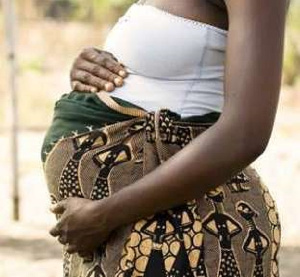The District Health Information Management System (DHIMS) of Ghana Health has revealed that about 6,533 teenage pregnancy have been recorded in the Upper East Region.
According to statistics, teenage pregnancy cases among girls aged 10 to 14 in the region has increased from 103 in 2019 to 142 in 2020, representing a 38 per cent increase.
A press statement by the Sexual and Reproductive Health and Rights (SRHR) Network in the Upper East Region noted that poverty, difficulties in accessing Adolescent Reproductive Health information and Youth Friendly Health services and effects of the Covid-19 pandemic have fueled high rates of unintended teenage pregnancies and child marriages in the Region.
According to the organisation, the majority of the reported teenage pregnancy incidences occurred in poor and rural districts of the region, particularly in the Bawku-West, Bongo and Talensi Districts, which recorded the highest incidents in 2020.
It further indicated that the risks of maternal deaths are higher for young adolescents, with girls aged between 15 years or younger facing higher risks than older adolescents.
"The need for all hands on deck to tackle the underlying causes of high teenage pregnancies and motherhood, including stigma, poverty, social norms around expected behaviours and peer pressure to engage in sexual relations at an early age resulting in unintended pregnancies."
With the alarming increase in teenage pregnancy, SRHR called on government and other stakeholders to initiate expedient measures to curb the increasing number of teenage pregnancy.
"SRHR is urging government (Ghana Education Service, Ghana Health Service and National Youth Authority) and traditional leaders to take urgent steps to make sure that adolescent girls receive the information and support they need to protect themselves from unintended pregnancy which most of the times lead to forced marriages.
"It is this worrying trend that the SRHR Network – Upper East Region calls on all stakeholders to as a matter of urgency to initiate open and frank discussions on adopting and implementing a culturally sensitive and age-appropriate Reproductive Health Education (RHE) in schools and communities in the Upper East Region and Ghana as a whole," it added.
Latest Stories
-
Duct-taped banana artwork sells for $6.2m in NYC
20 mins -
Arrest warrants issued for Netanyahu, Gallant and Hamas commander over alleged war crimes
23 mins -
Actors Jonathan Majors and Meagan Good are engaged
28 mins -
Expired rice saga: A ‘best before date’ can be extended – Food and Agriculture Engineer
36 mins -
Why I rejected Range Rover gift from a man – Tiwa Savage
37 mins -
KNUST Engineering College honours Telecel Ghana CEO at Alumni Excellence Awards
1 hour -
Postecoglou backs Bentancur appeal after ‘mistake’
1 hour -
#Manifesto debate: NDC to enact and pass National Climate Law – Prof Klutse
1 hour -
‘Everything a manager could wish for’ – Guardiola signs new deal
2 hours -
TEWU suspends strike after NLC directive, urges swift resolution of grievances
2 hours -
Netflix debuts Grain Media’s explosive film
2 hours -
‘Expired’ rice scandal: FDA is complicit; top officials must be fired – Ablakwa
3 hours -
#TheManifestoDebate: We’ll provide potable water, expand water distribution network – NDC
3 hours -
IPR Ghana@50: Pupils educated to keep the environment clean
3 hours -
PenTrust CEO named ‘Best Pensions CEO’, company wins ‘Scheme Administrator Award’ at Ghana Accountancy & Finance Awards 2024
4 hours

